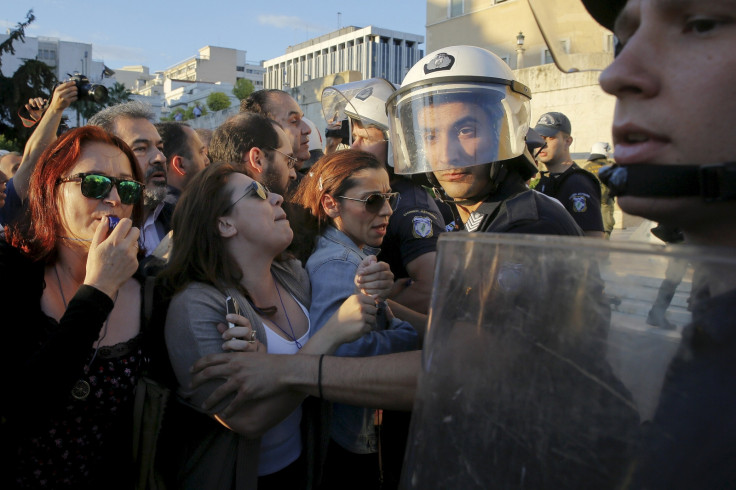Greek deal will be a tough sell to Athens parliament and voters

As negotiations between Greece and the EU edge toward their zero-hour, opposition sweeping the country proves that, no matter what happens, any deal will be a tough sell at home and could lead to action in the streets.
If a deal is reached in Brussels on whether Greece will get €7.2bn (£5.12bn, $8bn) of bailout aid and avert a default on June 30, Prime Minister Alexis Tsipras will need to bring it to Athens parliament for approval. Then the Greek people may either show their acceptance or dissent with their feet.
Already some MPs from Tsipras's left-wing Syriza party are saying they are unhappy swallowing concessions he has proposed in his most recent deal to untangle the argument with creditors at the International Monetary Fund (IMF).#BREAKING: #Greece: minister tells political com. of #Syriza that last creditors' proposal is 'absurd' (party source) pic.twitter.com/3i80XtJcSg
— Rodrigo Barbosa (@RodaLarga) June 24, 2015
Lenders reviewed the points of the Greek proposal on Wednesday 24 June and issued a counter-offer which Greece has indicates it rejects. One of the sticking points for creditors is pensions. They call for early retirement to be eliminated in Greece until 2022 and to cap retirement at 67 or at 62 years with 40 years of work.
The repeated rejection of equivalent measures by certain institutions never occurred before-neither in Ireland nor Portugal. #Greece (1/2)
— Alexis Tsipras (@tsipras_eu) June 24, 2015
Yesterday pensioners filled the streets of Athens. Busloads of them appeared to oppose between 30-60% cuts to their pensions in recent years and services such as health care. They feel cheated because they made contributions to pay for these services throughout their working years.
Pensioners out on the streets protesting.. Who's listening? #Athens #Greece pic.twitter.com/dWsrI0j9c5
— Theopi Skarlatos (@TheopiSkarlatos) June 23, 2015
On news of the deal's rejection, opposition party To Potami said that it backs the idea of austerity, cutting public spending and not raising taxes. "The actual dilemma is euro or poverty, euro or permanent austerity," said party leader Stavros Theodorakis, indicating that a deal should be accepted.
We need to cut down on excessive public spending, instead of imposing further taxes #topotami http://t.co/UmWNv9cpRF pic.twitter.com/MZOE1H2vKP
— ToPotami_Int'l (@ToPotami_Intl) June 24, 2015
Theodorakis: "The actual dilemma is euro or poverty, euro or permanent austerity" #topotami http://t.co/T64o5kKxrE pic.twitter.com/uqYFpHeMhQ
— ToPotami_Int'l (@ToPotami_Intl) June 24, 2015
Syriza was voted in by Greeks in a snap election on 25 January this year on its anti-austerity platform — a stance that concerned Greece's creditors and Eurozone supporters.
In response to the EU and IMF's austerity measures on the country in September 2012, Greek police clashed with protestors in the streets, firing teargas as some of the 50,000 protestors who marched on the Greek parliament threw petrol bombs and stones.
Greek unemployment sat at 25.6% in March, with youth unemployment at 49.70% during the same time. How the unemployed take to the streets on news of a deal may not be decided by either the Greek government or its creditors.
© Copyright IBTimes 2025. All rights reserved.






















